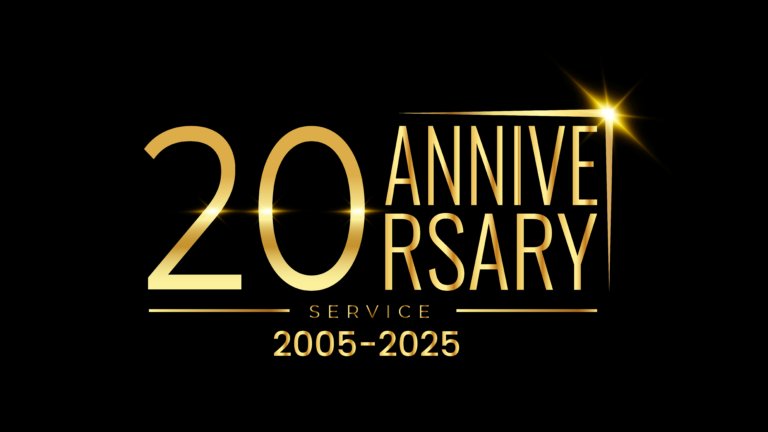Time management may not sound glamorous, but it’s one of those things that underpins everything you do in your professional life (and indeed beyond). As a field service engineer, your days are filled with a multitude of different tasks, and developing effective time management strategies to help you complete them in an efficient manner, all while delivering the high level of service your customers and employers expect, is critical. In this article, we’re going to look at ten useful time and task management strategies to help you get through the working day in the most efficient way possible.
1. Mindset
Whatever their industry, the world’s top-performing professionals have one thing in common: the right mindset. Getting into the right frame of mind is crucial for tackling a complex project, and that’s especially true for field service engineers, whose days are filled with solving problems. One way to help yourself start thinking clearly and solving problems more quickly is to practice mindfulness and meditation, which have emerged as powerful tools in time management. It sounds counterintuitive, but taking time out at the start of the day can actually help save you time and allow you to manage your time better. In fact, mindfulness has even been shown to promote divergent thinking in engineers.
2. Use daily visualisation for better results
Just as an engineer visualises how to solve a problem, they should also be able to visualise the outcome of their day before starting their tasks. The thinking behind this is that by focusing on the result you want to achieve rather than merely the actions, you’ll work more efficiently to reach that goal. One way of achieving effective daily visualisation is to set clear goals for your day, as we’ll discuss in our next point.
3. Set clear goals for your day
Whether you’re working on one big project or juggling lots of different tasks, it can be difficult to know where to begin each day. That’s why, as any successful engineer knows, starting the day with clear goals is essential both for completing the day’s tasks and for longer-term success. Breaking down larger projects into smaller, more manageable goals will help you manage your time more effectively, as well as boosting your motivation. After all, there’s nothing more satisfying and motivating than ticking off items on your To Do list.
4. Utilise new technologies
Another way to improve your time management is to keep admin to a minimum, and ideally to keep it paperless by using field service management software like RedZebra. This speeds up the time it takes to record the work you’ve carried out, and makes it easier to work with other people, who can then access your job reports and other information over the cloud from wherever they are.
Not only that, but it’s quicker to type a job report digitally than it is to write it by hand – and there won’t be any problems with reading your handwriting or that of your colleagues. Even better, when everything you do is online and automatically sent to customers or uploaded to a central database – from quoting for jobs to obtaining customer sign-off – you’ll know that you’re taking care of the admin side of your job in the most efficient, time-effective way possible.
5. Track your time
How can you improve your time management if you’re not clear about how you’re actually spending your time each day? Tracking your time is a useful exercise for helping you gain clarity on how much time different tasks take up, so you can spot areas where there might be room for improvement (taking too much time on admin, for example, as mentioned in our previous point).
Paired with job scheduling software, this can be a great strategy to make you a more effective engineer. RedZebra job scheduling software for engineers allows you to schedule incoming calls and prioritise important tasks, enabling you to structure your time effectively, maximise productivity and deliver the best possible service to the customers you work for.
6. Incorporate milestones into tasks
When you’re trying to improve your time management, you may find it useful to become familiar with the idea of project management milestones. Milestones are useful because they’re a marker of progress, and the idea is that by adding them into engineering tasks, you know where you need to be at each stage of a project. This can help you with time management, because milestones are a way of marking out the timeline of a project for scheduling purposes, with the timing of reaching each one having the potential to affect your scheduling for subsequent phases.
7. Use project management principles
While project management may not be part of your day-to-day work as a service engineer, it can be useful to adopt its principles to help you become more efficient at certain tasks. Developing project management skills and familiarising yourself with the methodologies, you’ll feel more in control of your time, be better able to ensure that projects remain on schedule and improve your communication skills in the process. Enhancing your project management skills doesn’t just benefit your daily tasks – it adds value to your employer and can help improve your career prospects, too.
8. Allow for ‘free float’
When it comes to time management, it’s useful to be aware of the idea of ‘free float’, a term that refers to the amount of time you can delay a task without it delaying other tasks. In practice, that might mean allowing a bit of extra time in your schedule for unforeseen circumstances, such as bad weather or equipment breakdown. If everything goes smoothly, this should allow you to complete projects ahead of schedule as well as giving you leeway just in case something goes wrong.
9. Learn to delegate
As an engineer, learning the art of effective delegation is an important strategy in time management. While it can be difficult to let go of control over some aspects of your day-to-day work, there are lots of benefits of delegation in terms of managing your own time effectively and using your skills on the tasks where they’re most needed.
With that in mind, you should be able to trust less experienced colleagues to perform routine tasks, helping you to manage your own workload as well as speeding up the project completion. One way of thinking about this is to keep in mind the 80/20 rule, also known as the Pareto Principle, which says that 80% of our results come from 20% of our actions. In other words, you concentrate on the top 20% while delegating the less important 80% to less experienced colleagues.
10. Improve communications
As with all aspects of working life, effective communications management is key to managing your time effectively and keeping projects on track. Learn how to streamline communications and make use of new technologies and your schedule will soon start to feel the benefits. RedZebra’s call management software can help with this, with features designed to help improve communication from one engineer to another. For example, the Call Mapping and Tracking feature means that it’s easy to pass on the location details of a project to another engineer, saving valuable time.
We hope you find these time management strategies useful. If you’d like to know more about how RedZebra’s field service management software can offer time-saving software solutions for your business, call us today on 01296 350350 or email [email protected].

